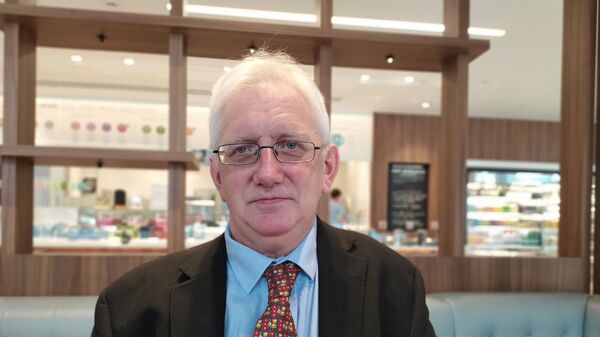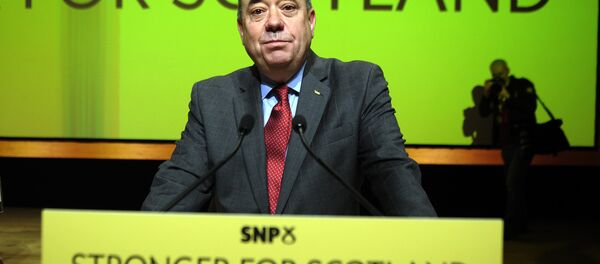The contempt of court case against former UK ambassador turned whistleblower Craig Murray completed on the afternoon of 27 January 2021, at the High Court in Edinburgh. Murray, a historian and journalist who publishes articles via his personal blog, was charged with three counts of contempt of court by the Scottish Lord Advocate. The charges are in relation to articles and social media posts that Murray published, both before and during the March 2020 criminal trial of former Scottish First Minister Alex Salmond.
Salmond was charged with 13 counts of sexual harassment and assault and was ultimately found not guilty on all counts. A judicial review in the High Court of Scotland, into the investigation and handling of Salmond's case, found the process to be "unlawful", "procedurally unfair" and "tainted by apparent bias".
Murray has critiqued the prosecution against Salmond for being a politically motivated "stitch-up". He was not alone in his assessment. For example, Solicitor Advocate Gordon Dangerfield told Sputnik in January 2021 that emails and text messages between Scottish civil servants, members of the SNP bureaucracy and alleged victims, reveal what appears to be a conspiracy to destroy Salmond's reputation and political career. A parliamentary inquiry has also been opened up into the Scottish government's handling of Salmond's case.
Murray's case was heard by a three-judge panel. The Lord Justice General, Lord Justice Clerk, and Lords Commissioners of Justiciary. Lady Leeona J Dorian, who is the Lord Justice Clerk and the second most senior judge in Scotland, oversaw the hearing and asked all the questions to the respective parties. Lady Dorian was also the trial judge overseeing Salmond's trial.
The Charges
Contempt of court charges can either be brought by a judge or the Crown.
There are three offences Murray is charged with:
- Publication of material that creates a "substantial risk" of prejudicing the jury in violation of the Contempt of Court Act 1981;
- Reporting on the exclusion of two jurors in violation of a court order "preventing publication of the details of the issues raised by the Advocate Depute on 23 March 2020" as they related to the jurors' removal; and
- 'Jigsaw identification' of alleged victims who testified against Salmond.
John Scott QC, speaking for the Respondent (ie Murray) started off his oral submissions explaining that the case represented important issues "raised in circumstances of some complexity and some novelty".
Publication of Material That Creates "Substantial Risk" to Prejudice the Jury
The Crown's case, in respect of Murray publishing material creating a "substantial risk" of prejudicing the jury, rested on two articles. One article was published in August 2019 entitled "The Alex Salmond Fit-Up" and another in January 2020 entitled "Yes Minister Fan Fiction". Alex Prentice QC, the Advocate Depute representing the Crown, also raised the argument that Murray is responsible for "improper moderation" of comments underneath these two articles on his website.
Murray's team argued that too much time had passed between the articles being published and the contempt of court petition, which wasn't filed until after Salmond's trial was over and he was acquitted of all the charges in March 2020. For that reason alone, the charges should be refused the defence argued. Murray's position is also that, in any event, the articles don't violate the Contempt of Court Act. The January 2020 article in particular represented a fictional account deliberately written in the form of the 1980s British political satire "Yes Minister", the court was told, reflecting Murray's desire to avoid breaching contempt of court rules.
Prentice nonetheless argued that the two articles are relevant for context as they demonstrate "the attitudes of the Respondent [ie Murray] towards his responsibilities in maintaining anonymity [of alleged victims in the Salmond case]". It is unclear how persuaded the judge's were of this latter argument. Murray's legal team submitted to the court that if the prosecution considered the articles a risk to the identity of protected witnesses (the anonymity order wasn't made by the court until ten and six months following the publications of the two articles respectively) then they could have raised the matter with the court. The Respondent's submissions are that because the Crown never raised any concerns to the court they should not now be permitted to claim that these articles risked indirectly providing information that could result in the identification of protected witnesses.
Murray's team also rejects the argument that they can be held liable for comments made by people other than him, either in reply to his social media posts or on his blog.
Lady Dorian now moves on to ask about comments on the articles published, asks if a failure to moderate them makes Murray responsible for them?
— James Doleman (@jamesdoleman) January 27, 2021
Advocate Depute says it does.
Reporting on the Exclusion of Jurors in Alleged Violation of a Court Order
Murray could not have violated the court order made in relation to the exclusion of a jury member, Scott submitted to the court. This is because his article on the subject did not directly refer to “the issues raised by the Advocate Depute” (i.e the reasons why the two jurors were removed) on 23 March 2020, and that was the only thing that the court order prohibited. The Crown itself acknowledges that Murray's article does not violate the precise wording of the order, but nonetheless contend that he violated it by offering his own explanation for the removal of the jurors. An explanation that the Crown, paradoxically, considered to be “bizarre and unfounded”, whilst simultaneously considering it to violate the bar on mentioning "the issues raised by the Advocate Depute" in support of the removal of the jurors.
'Jigsaw Identification'
The final, and perhaps most complex charge, Murray faces is the allegation that his articles, either individually or in conjunction with other articles and material that can be obtained including via Google and social media, could indirectly result in members of the public determining the identity of alleged victims in the Salmond case. This is known as "jigsaw identification".
Whether this charge is considered proven by the court, may well be determined by how the judges choose to interpret the law relating to jigsaw identification.
Prentice argued that the order should be interpreted widely. This would potentially mean that a journalist would violate the law if someone who already has intimate knowledge of the case could piece together enough information from their articles to identify a protected witnesses.
Scott argued that to interpret the court order so widely would be unfair under the circumstances and would be a violation of the Article 10 rights of journalists and the public, thereby infringing on their right to impart and receive information. He noted that if the court decides to take that course of action further guidance and consideration would have to be given by judge's when specifying their orders protecting the identity of participants in court cases.
"The potential for jigsaw identification, by which is meant diverse pieces of information in the public domain, which when placed together reveal the identity of an individual, can sometimes be too loosely asserted and the risk overstated. [...] jigsaws come with varying complexities. A 500-piece puzzle of Schloss Neuschwanstein [19th century German castle] is a very different proposition to a 12-piece puzzle of Peppa Pig."
Hayden explained that, "whilst some information in the public domain may be pieced together by those determined to do so, the risk may be relatively remote. The remoteness of the risk would require to be factored in to the balancing exercise when considering the importance of the Article 10 rights".
Consideration should also be given that in complex cases, it "might [also] be possible for good faith errors to be made there", Scott told the court.
Lady Dorian appeared to accept that when assessing whether jigsaw information violated a court order it may be necessary to determine the facts on a case-by-case basis. "I suppose that it may be that the assessment of this has got to be fact sensitive from the point of view of jigsaw identification, as opposed to other forms of identification", Lady Dorian said towards the end of the hearing. "Jigsaw is to some extent fact sensitive", she conceded.
Another key point raised by Scott was that it is not possible for the prosecution to rely on Google searches to support the claim that information from Murray's articles could be put into search engines to determine the identity of protected witnesses. The algorithms are constantly changing, Scott told the court, and their own search results did not match those submitted by the Crown. Lady Dorian herself raised the point that search results made now could not be said to produce the same results that would have appeared last year. A conclusion that Prentice himself accepted during the hearing.
A "Political Stitch-Up"?
Murray has previously described the charges against him as politically motivated, resulting from his characterisation of Salmond's case as itself being a politically motivated "stitch-up".
The former ambassador to Uzbekistan recently wrote that his defence team believe his case to be the "first modern prosecution in Scotland (or England) for a publication allegedly influencing a jury in favour of the defendant". "It has always been assumed the Crown and the judge are big enough to counter any prejudice against the Crown", he added. Scott also briefly raised this point with the court.
If convicted, Murray faces up to two years in prison and an unlimited fine. The three judges must apply the threshold of 'beyond all reasonable doubt' when making findings of fact in his case. It was originally expected that the trial would extend to a second day, however the proceedings came to a close with Lady Dorian declaring that it will "take time to consider decision" and that the court would issue their verdict in writing "in due course".





